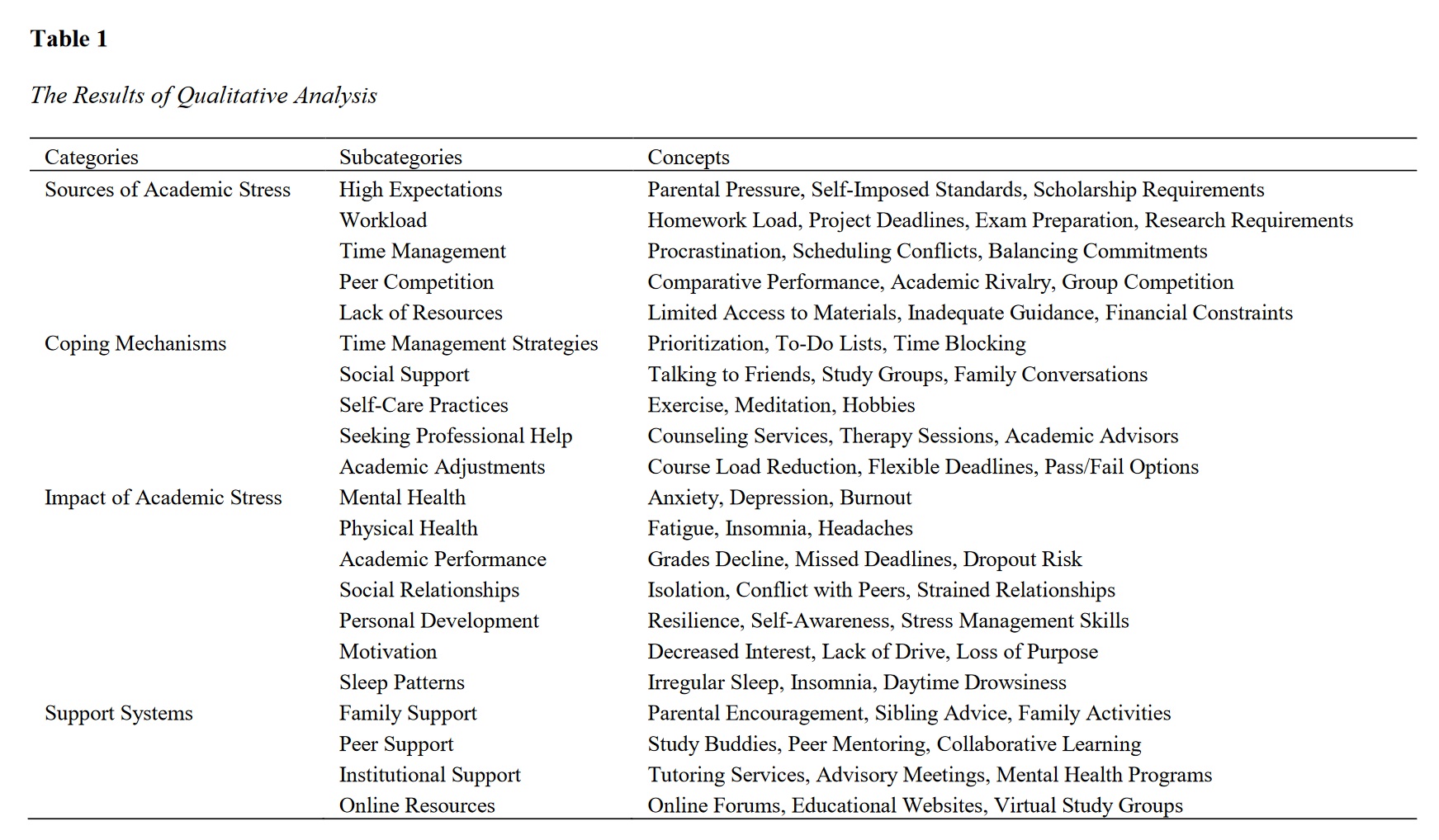Experiences of Academic Stress and Coping Mechanisms in High-Achieving Students
Keywords:
academic stress, high-achieving students, coping mechanisms, qualitative study, mental health, time management, social support, academic performanceAbstract
The primary objective of this study was to explore the experiences of academic stress and the coping mechanisms employed by high-achieving students. The research aimed to identify key sources of stress, understand how these students manage their stress, and evaluate the impact of stress on their academic performance and overall well-being. This qualitative study utilized semi-structured interviews to collect data from 21 high-achieving students at a prestigious university. Participants were selected based on their high academic performance and involvement in extracurricular activities. Data analysis was conducted using NVivo software, following a thematic approach to identify recurring themes and patterns. Theoretical saturation was achieved, ensuring comprehensive coverage of the participants' experiences. The study identified several key sources of academic stress, including high expectations, heavy workload, time management challenges, peer competition, and lack of resources. Coping mechanisms employed by students included effective time management strategies, seeking social support, engaging in self-care practices, obtaining professional help, and making academic adjustments. The impact of academic stress was profound, affecting students' mental and physical health, academic performance, social relationships, personal development, motivation, and sleep patterns. The findings align with existing literature, highlighting the complex nature of academic stress and the diverse coping strategies used by students. High-achieving students experience significant academic stress due to various sources, which can negatively impact their well-being and academic performance. However, effective coping mechanisms and support systems can mitigate these effects. Institutions should develop comprehensive support systems, provide adequate resources, and foster a supportive academic environment to help students manage stress. Further research is needed to explore the role of individual differences and to develop targeted interventions for reducing academic stress among high-achieving students.
Downloads

Downloads
Additional Files
Published
Issue
Section
Categories
License
Copyright (c) 2024 Daniela Gottschlich (Corresponding Author); Neda Atapour (Author)

This work is licensed under a Creative Commons Attribution-NonCommercial 4.0 International License.







